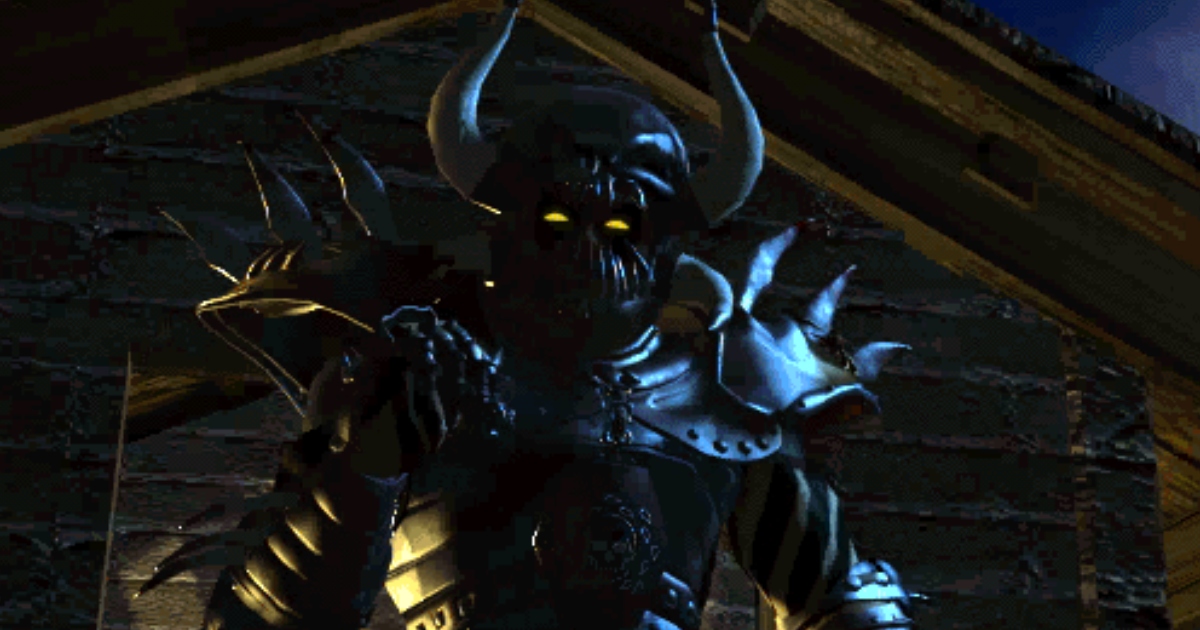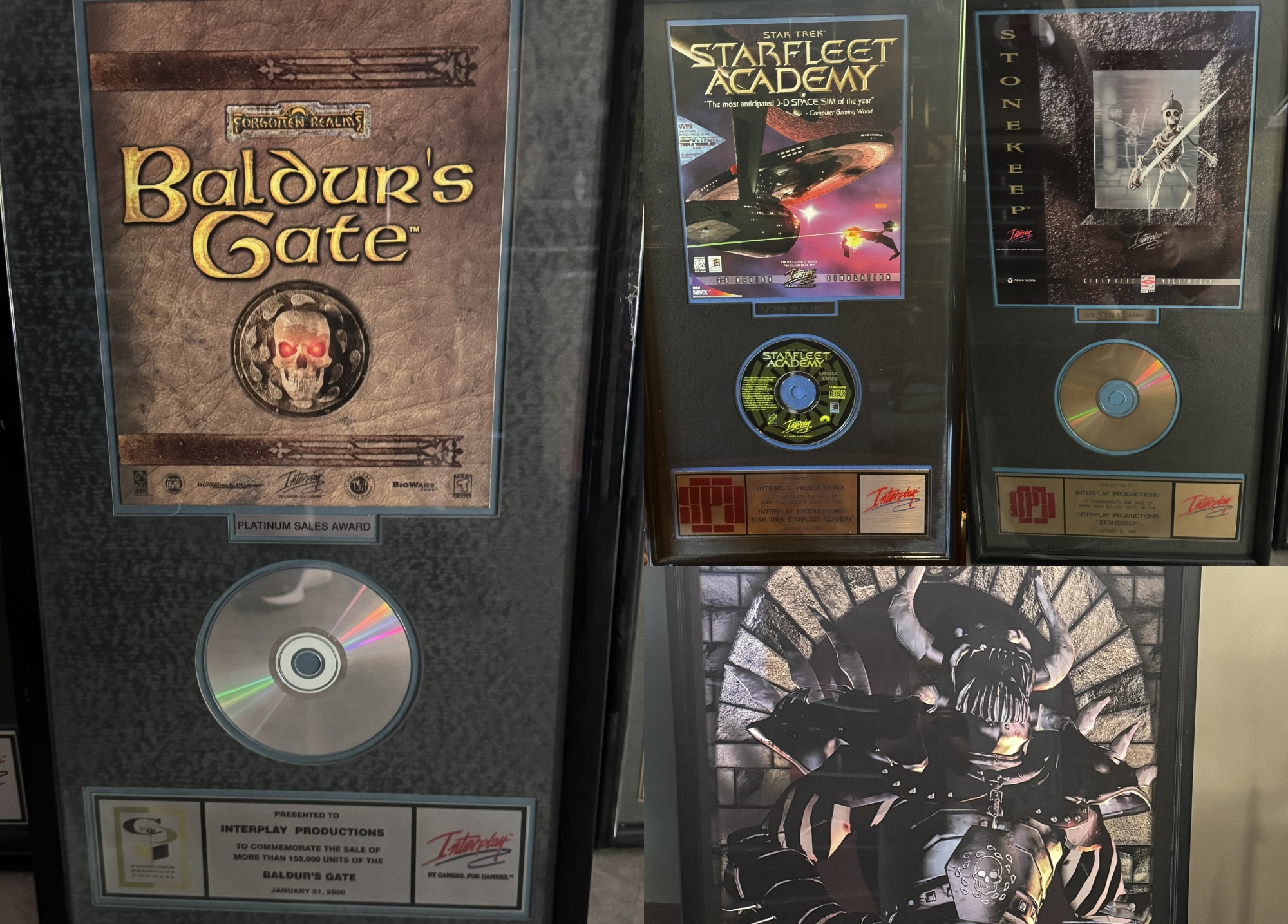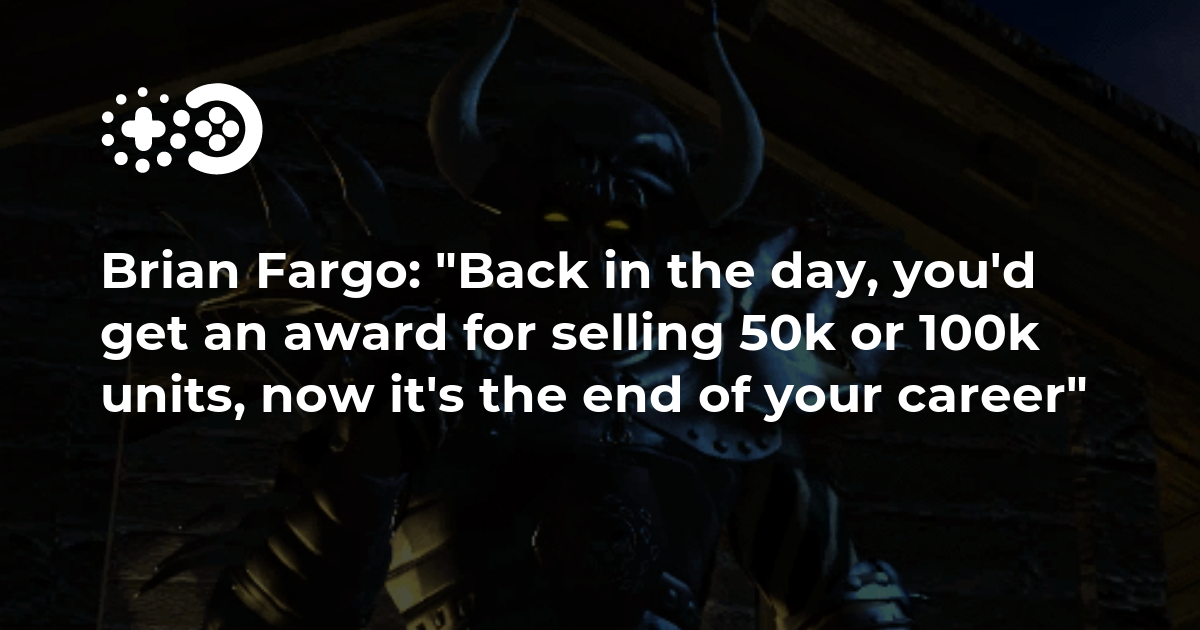Well-known game developer Brian Fargo has managed to save his memorabilia from the good old days of Interplay Entertainment. Some of these relics show how the gaming industry has changed since the 1990s.

Baldur’s Gate (1998)
Last month, Fargo shared images of various posters and plaques for games developed or published by Interplay (thanks, PC Gamer). “I finally got around to buying my old Interplay memorabilia and it’s a treasure trove,” he said.
I was talking to my friend at Bethesda today and apparently this poster is pretty rare. It was for a trade show and advertising in the Washington area and not for consumers.
Has anyone else seen this in the wild? pic.twitter.com/wcDU3K80Mr
— Brian Fargo (@BrianFargo) 9 August 2024
At the time, the Software Publishers Association (SPA) gave awards to games for reaching certain sales milestones, similar to how the RIAA and other organizations certified songs and albums. Fargo noted that the SPA “held a glamorous evening event where game awards and sales plaques were given out.”
His collection includes plaques for the following titles:
- Fallout (1991) – over 50,000 units sold (Silver Award);
- Stonekeep (1995) – over 100,000 units sold by October 12, 1996 (Gold Award);
- Battle Chess (1988) – over 100,000 units sold by August 20, 1990 (Gold Award);
- Descent (1994) – over 100,000 units sold by December 11, 1996 (Gold Award);
- Baldur’s Gate (1998) – over 150,000 units sold by January 31, 2000 (Platinum award);
- Star Trek: Starfleet Academy (1997) – over 250,000 units sold by January 14, 1998 (Platinum award);
- Mario Teaches Typing (1991) – over 250,000 units sold by October 15, 1993 (platinum award).

Photo credit: Brian Fargo
Although some of these games are now considered classics, their sales figures do not compare to what today’s major publishers would consider a commercially successful release. “In the past, you would get an award for selling (50,000) or 100,000 units, now that’s the end of your career,” Fargo wrote wryly.
As an indie developer and depending on your game’s budget, you can still be happy with 50,000 to 100,000 units in today’s market. However, the other side of the industry – let’s call it the AA-AAA segment for simplicity’s sake – has changed dramatically in the last 20-30 days.
Everything has gotten bigger: scale, teams, development/marketing costs. If Baldur’s Gate 3 had sold 100,000 copies at launch (like the very first game), that would have been nowhere near enough for Larian to break even.
In the past, you would get an award for selling 50,000 or 100,000 units, but today that’s the end of your career. 😆 pic.twitter.com/FfFmxcPT6Q
— Brian Fargo (@BrianFargo) July 31, 2024
In his career spanning over 40 years, Brian Fargo has experienced the gaming industry from every angle and aspect. He co-founded Interplay Entertainment in 1983 and has been involved in the development and/or publication of many RPGs such as Wasteland, The Bard’s Tale, Neuromancer, The Lost Vikings, Fallout, Planescape: Torment, and Icewind Dale.
Fargo founded a new studio, inXile Entertainment, in 2002. The company, which was acquired by Microsoft in 2018, is known for games such as Wasteland 2-3 and Torment: Tides of Numenera. Currently, inXile is working on the steampunk role-playing game Clockwork Revolution.

